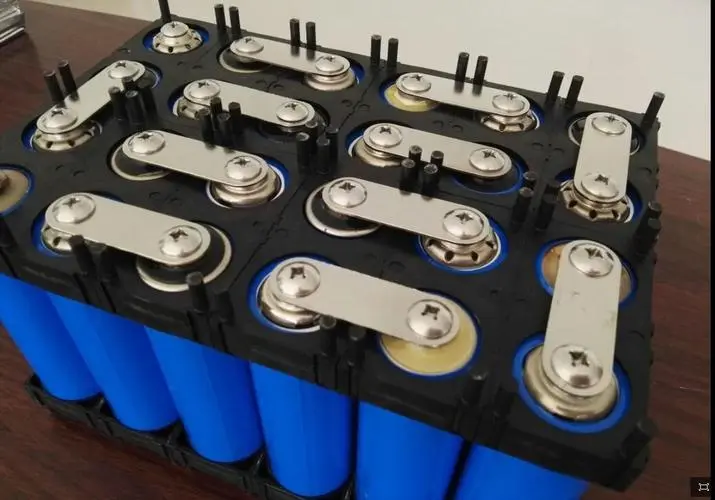 |
Welcome To Evlithium Best Store For Lithium Iron Phosphate (LiFePO4) Battery |
 |

LiFePO4 batteries, also known as lithium iron phosphate batteries, are a type of rechargeable lithium-ion battery. They are known for their high energy density, long cycle life, and excellent thermal stability. LiFePO4 batteries are commonly used in electric vehicles, renewable energy systems, and portable electronics due to their safety and reliability.
LiFePO4 batteries use lithium iron phosphate as the cathode material. This chemistry is chosen for its stability and reduced risk of thermal runaway, making LiFePO4 batteries one of the safest lithium-ion battery types.
Before you begin assembling your LiFePO4 battery pack, gather the following materials:
To create a LiFePO4 battery pack, you'll first need to prepare the individual battery cells. This involves spot welding nickel strips to the cells, ensuring proper connections while maintaining safety precautions.
Once the battery cells are prepared, assemble them into the desired configuration for your specific application. This may involve arranging the cells in series, parallel, or a combination of both to achieve the desired voltage and capacity.
Integrate the battery management system (BMS) into your pack. The BMS monitors and balances individual cell voltages, protects against overcharging and over-discharging, and ensures the overall safety and performance of the battery pack.
Carefully connect the battery cells and the BMS using high-quality wiring and connectors. Proper wiring is crucial to prevent short circuits and ensure efficient power flow.
Before sealing the battery pack, charge it to full capacity and test its performance. Verify that all cells are balanced and functioning correctly. This step is crucial to avoid issues later on.
Safety should be a top priority when working with LiFePO4 batteries. Always follow safety guidelines, use proper insulation, and avoid physical damage to the cells.
Learn how to maximize the performance and lifespan of your LiFePO4 battery pack by implementing proper charging and discharging practices.
Understand the common mistakes that can lead to reduced battery life and safety hazards, and how to avoid them during the assembly and use of your LiFePO4 battery pack.
Regular maintenance is essential to ensure your LiFePO4 battery pack's longevity. We'll provide you with tips on how to keep your battery pack in top condition.
Explore the wide range of applications where LiFePO4 battery packs are used, from electric vehicles and solar energy systems to portable gadgets and backup power supplies.
Learn about the environmental benefits of LiFePO4 batteries, such as reduced carbon emissions and recyclability, contributing to a greener future.
In conclusion, creating a LiFePO4 battery pack requires careful planning, knowledge of battery chemistry, and attention to safety. By following this step-by-step guide, you can build a reliable and efficient LiFePO4 battery pack for your specific needs.
How long do LiFePO4 batteries last?
LiFePO4 batteries can typically last for 2,000 to 3,000 charge cycles, which translates to several years of use.
Can LiFePO4 batteries be overcharged?
No, LiFePO4 batteries have built-in protection against overcharging, making them safe to charge without constant monitoring.
What are the advantages of LiFePO4 batteries over other lithium-ion batteries?
LiFePO4 batteries are known for their enhanced safety, longer cycle life, and thermal stability compared to other lithium-ion battery types.
Are LiFePO4 batteries suitable for solar energy storage?
Yes, LiFePO4 batteries are an excellent choice for solar energy storage due to their high efficiency and long lifespan.
How do I dispose of LiFePO4 batteries responsibly?
It's important to recycle LiFePO4 batteries at designated recycling centers to minimize their environmental impact.
Edit by editor
Last Update:2023-09-18 10:29:13
All Rights reserved © 2026 Evlithium Limited